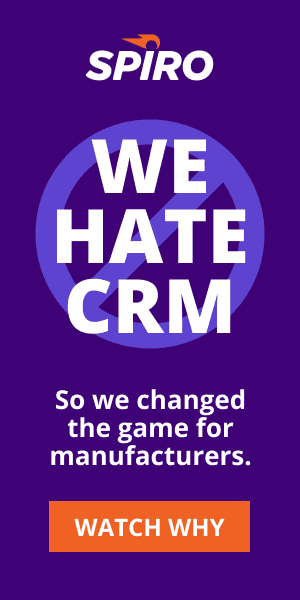5 Questions You Must Ask Every Prospect
When I was starting out in sales, I literally made a list of every question I could possibly ask a prospect and then diligently worked through each one with the client. I clearly hadn’t realized that sometimes less is more, and key to sales success is knowing what the ask, when to ask, and when to stop talking.
When you finally do get a prospect on the phone, (which shouldn’t be too hard if you are using Spiro to help remind you of who to call), make the most out of your time and prepare with questions around these five areas of sales.
Rapport
When you get a new prospect on the phone, you want to start building a personal relationship right away. It is important to use some rapport building techniques to lay a solid foundation of trust. Ask honest, open-ended questions that allows them to talk freely, and then listen intently.
“I see you’re from San Francisco — is everyone excited about the Warriors?”
Another easy way to show that you care, is to ask them how they prefer to be contacted – email, phone, morning or afternoon? Finding out what communication method makes them most comfortable – and then sticking to it – is an easy way to establish trust and respect.
Goal Alignment
When qualifying a prospect to see if a viable sale opportunity exists, you need to figure out pretty quickly what their needs are. You are probably asking questions to assess if your product or solution fills a gap and solves an issue for them. The trick is to approach your line of question in a creative way, so you get the most insightful answer out of them.
“So Jane, where does helping doctors be more efficient fit into your goals for the year?”
All businesses want to make a larger profit, which normally happens through growth, cutting costs, and bettering their reputation. Ask specific questions that will allow you to understand how they are trying to achieve their goals. Then make your case on how you can align with their goals to accelerate their profit margins.
Budget
Talking about money makes most people uncomfortable, so approach your line of questioning in a non-threatening way, like asking for a budget range. You can also let them know how much similar clients tend to spend with you.
“Other customers of your size spend about $50,000-$75,000 with us. Does that range align with your budget?”
It’s important also to understand how fluid or fixed their budget is, and to question them on other outside factors that could be affecting how much they can spend. It is much easier to qualify a prospect if you know up front if there are a lot of financial road-blocks you’re up against.
Timing
When talking about timing, don’t just ask “when”, but also ask “why”. For forecasting purposes, you’d like to know what quarter this deal is probably going to happen, but to better understand their deadline, you should be questioning why the timing is important for them.
“You mentioned hoping to sign by end of month, but why does that timing work for your schedule?”
Extra money to spend before the year’s up, or waiting for another project to finish up – these are good things to know right off the bat. It helps you work with them around their concerns of timing, instead of just blindly driving towards an arbitrary date.
Fit
In the initial stages of a deal, you are typically busy sussing out how well your solution matches up against your prospect’s goals and trying to sell them on that. But why not flip the script a bit, and instead ask your prospect to articulate why you are the right fit for them. Have them sell themselves on you.
“So tell me, how do you see our product fulfilling your needs?”
It may seems like a bit of reverse psychology, but it works. It forces them to convince themselves that you are the right fit for them. The prospect may also bring up some reservations they have with the product, timing or budget, and that will help give you insight on where you need to focus.

